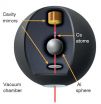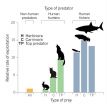(Press-News.org) DALLAS, Aug. 20, 2015 -- Caregiver spouses of stroke survivors are at an increased risk of mental and physical health issues that may continue for years, according to research in the American Heart Association journal Stroke.
Swedish researchers evaluated 248 stroke survivors, below age 70 (average mid-sixties), and their spouses at stroke onset and compared the results with 245 non-stroke controls for seven years after the stroke event.
At the seven-year follow-up, 16.5 percent of survivors had suffered a recurrent stroke. Spouses of survivors reported lower scores in several mental and physical areas -- more health issues affecting their lives, less vitality, and reduced social function -- not only during the first years after stroke but also in the long-term.
Caregivers' quality of life was most adversely affected by their spouses' level of disability, cognitive difficulties and depressive symptoms.
"It is known that spouses of older stroke patients experience health-related physical and mental issues, and that the degree of their problems is associated with the severity of the stroke, but ours is the first long-term study of seven years follow up to explore this in a younger group of people," said Josefine Persson, M.Sc., study author and a researcher and Ph.D. candidate at the Institute of Neuroscience and Physiology at Sahlgrenska Academy, University of Gothenburg, Sweden.
"Our results also highlight the impact on the spouses' mental health due to demanding changes in the life situations of these families, not only during the first years after stroke onset but also in the long term."
Researchers said juggling work and caregiving is different among younger and older caregivers. "Caring for a spouse after a stroke can be demanding and can reduce a husband or wife's time spent at their occupation, which also can be a burden for many younger families, and the underlying problems can continue several years," Persson said. The findings also have implications for healthcare policymakers and calls attention to the need for greater social support for these individuals, she said.
Researchers surveyed spouses with questionnaires to measure their health status and calculate their quality of life. Age, children, education and work status were also included in the review.
They made subjective reports of mental health, vitality, social functioning and emotional status of spouses by phone questionnaires or face-to-face evaluation.
The stroke survivors underwent standardized tests to assess the severity of their stroke, degree of disability and dependence on caregivers, body pain, daily living activities, depression and anxiety.
INFORMATION:
Co-authors are Lukas Holmegaard, M.D.; Ingvar Karlberg, M.D., Ph.D.; Petra Redfors, M.D., Ph.D.; Katarina Jood, M.D., Ph.D.; Christina Jern, M.D., Ph.D; Christian Blomstrand, M.D., Ph.D.; and Gunilla Forsberg-Wärleby, Ph.D. and. Author disclosures and funding are on the manuscript.
Additional Resources:
Researcher photo and stroke illustrations are located in the right column of this release link
Link to study after embargo
http://supportnetwork.heart.org/stroke
http://supportnetwork.heart.org/caregiver
Support network helps people living with heart disease, stroke
Older, active, confident stroke caregivers are happiest
Follow AHA/ASA news on Twitter @HeartNews.
For stroke science, follow Stroke at @StrokeAHA_ASA.
Statements and conclusions of study authors published in American Heart Association scientific journals are solely those of the study authors and do not necessarily reflect the association's policy or position. The association makes no representation or guarantee as to their accuracy or reliability. The association receives funding primarily from individuals; foundations and corporations (including pharmaceutical, device manufacturers and other companies) also make donations and fund specific association programs and events. The association has strict policies to prevent these relationships from influencing the science content. Revenues from pharmaceutical and device corporations are available at http://www.heart.org/corporatefunding.
Boston, MA -- A widely used class of industrial chemicals linked with cancer and interference with immune function--perfluorinated alkylate substances, or PFASs--appears to build up in infants by 20%-30% for each month they're breastfed, according to a new study co-authored by experts from Harvard T.H. Chan School of Public Health. It is the first study to show the extent to which PFASs are transferred to babies through breast milk, and to quantify their levels over time.
"We knew that small amounts of PFAS can occur in breast milk, but our serial blood analyses now show ...
In-depth interviews conducted by researchers at the Johns Hopkins University School of Medicine of 20 young women attending an urban sexually transmitted disease clinic have documented a variety of unexpected, unintended sexual encounters linked to their alcohol use before sex occurs.
Links between alcohol use and risky or deleterious sexual encounters are not necessarily new, say investigators, but this small study identifies very specifically the disconnect between what young women have in mind when they drink and have sex and what really happens.
"The idea behind ...
According to a survey conducted by Rhode Island Hospital researchers, there is significant variability regarding how clinicians manage catheters placed in the arteries of patients in intensive care units. Some practices may increase risk of infection associated with these catheters. Fewer than half of those surveyed complied with current Centers for Disease Control and Prevention (CDC) infection prevention guidelines for arterial catheter insertions. The study was published today in Critical Care Medicine.
"Barrier precautions are employed inconsistently by critical care ...
Washington, DC - August 20, 2015 - Swedish exchange students who studied in India and in central Africa returned from their sojourns with an increased diversity of antibiotic resistance genes in their gut microbiomes. The research is published 10 August in Antimicrobial Agents and Chemotherapy, a journal of the American Society for Microbiology.
In the study, the investigators found a 2.6-fold increase in genes encoding resistance to sulfonamide, a 7.7-fold increase in trimethoprim resistance genes, and a 2.6-fold increase in resistance to beta-lactams, all of this without ...
PHOENIX, Ariz. -- Aug. 20, 2015 -- A study by the Translational Genomics Research Institute (TGen) and other major research institutes, found a new set of genes that can indicate improved survival after surgery for patients with pancreatic cancer. The study also showed that detection of circulating tumor DNA in the blood could provide an early indication of tumor recurrence.
In conjunction with the Stand Up To Cancer (SU2C) Pancreatic Cancer Dream Team, the study was published in the prestigious scientific journal Nature Communications.
Using whole-exome sequencing ...
If dark energy is hiding in our midst in the form of hypothetical particles called "chameleons," Holger Müller and his team at the University of California, Berkeley, plan to flush them out.
The results of an experiment reported in this week's issue of Science narrows the search for chameleons a thousand times compared to previous tests, and Müller, an assistant professor of physics, hopes that his next experiment will either expose chameleons or similar ultralight particles as the real dark energy, or prove they were a will-o'-the-wisp after all.
Dark energy ...
Management of boreal forests needs greater attention from international policy, argued forestry experts from the International Institute for Applied Systems Analysis (IIASA), Natural Resources Canada, and the University of Helsinki in Finland in a new article published this week in the journal Science. The article, which reviews recent research in the field, is part of a special issue on forests released in advance of the World Forestry Congress in September.
"Boreal forests have the potential to hit a tipping point this century," says IIASA Ecosystems Services and Management ...
This news release is available in Japanese.
Humans are just one of many predators in this world, but a new study highlights how their intense tendency to target and kill adult prey, as well as other carnivores, sets them distinctly apart from other predators. As humans kill other species in their reproductive prime, there can be profound implications -- including widespread extinction and restructuring of food webs and ecosystems--in both terrestrial and marine systems. To evaluate the nature of human predation compared to nonhuman predation, Chris Darimont et al. conducted ...
This news release is available in Japanese.
In this special issue, the editors of Science invite experts to provide closer looks at how natural and human-induced environmental changes are affecting forests around the world, from the luscious, diverse forests of the tropics, to the pristine, resilient boreal forests of the north. The special issue is complemented by a package from Science's news department.
Amid extreme environmental and climate changes, Susan Trumbore and colleagues highlight the urgency of monitoring forest health, especially ...
This news release is available in Japanese.
Amid continued difficulties around assessing bioweapons threats, especially given limited empirical data, Crystal Boddie and colleagues took another route to gauge their danger: the collective judgment of multiple experts. The experts' opinions on bioweapons-related risks were quite diverse, the Policy Forum authors say, adding to the challenge around developing a regulatory system for legitimate dual use research. Boddie et al. explain how they employed a Delphi Method study to query the beliefs and opinions of 59 experts ...


